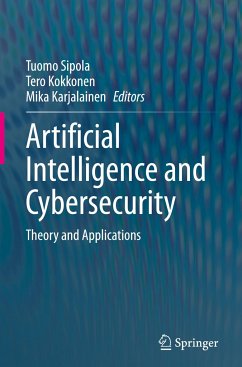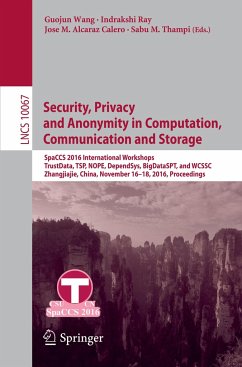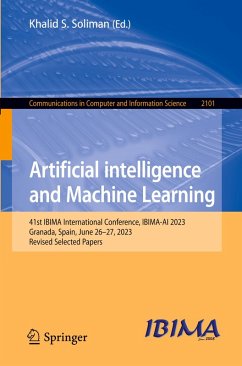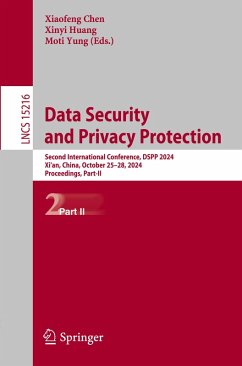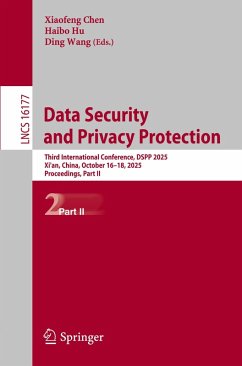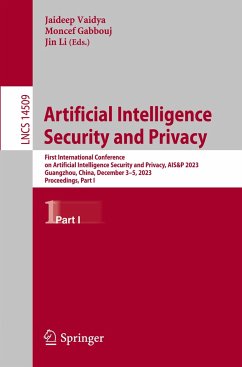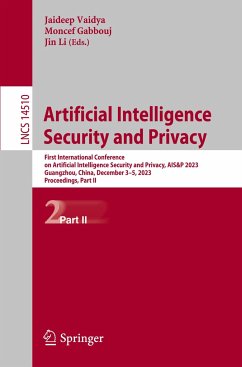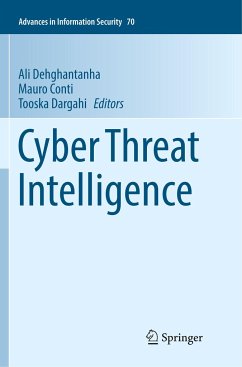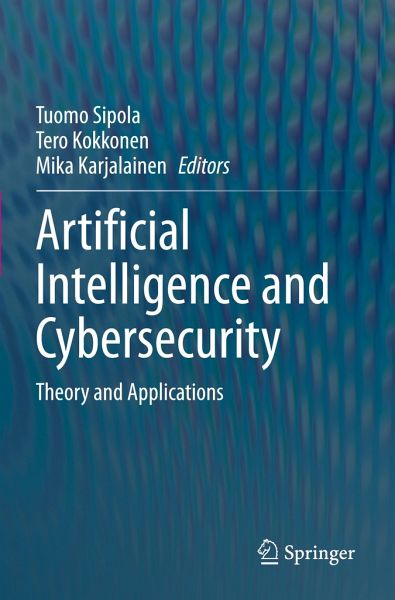
Artificial Intelligence and Cybersecurity
Theory and Applications
Herausgegeben: Sipola, Tuomo; Kokkonen, Tero; Karjalainen, Mika
Versandkostenfrei!
Versandfertig in 6-10 Tagen
121,99 €
inkl. MwSt.

PAYBACK Punkte
61 °P sammeln!
This book discusses artificial intelligence (AI) and cybersecurity from multiple points of view. The diverse chapters reveal modern trends and challenges related to the use of artificial intelligence when considering privacy, cyber-attacks and defense as well as applications from malware detection to radio signal intelligence.The chapters are contributed by an international team of renown researchers and professionals in the field of AI and cybersecurity.During the last few decades the rise of modern AI solutions that surpass humans in specific tasks has occurred. Moreover, these new technolog...
This book discusses artificial intelligence (AI) and cybersecurity from multiple points of view. The diverse chapters reveal modern trends and challenges related to the use of artificial intelligence when considering privacy, cyber-attacks and defense as well as applications from malware detection to radio signal intelligence.
The chapters are contributed by an international team of renown researchers and professionals in the field of AI and cybersecurity.
During the last few decades the rise of modern AI solutions that surpass humans in specific tasks has occurred. Moreover, these new technologies provide new methods of automating cybersecurity tasks. In addition to the privacy, ethics and cybersecurity concerns, the readers learn several new cutting edge applications of AI technologies.
Researchers working in AI and cybersecurity as well as advanced level students studying computer scienceand electrical engineering with a focus on AI and Cybersecurity will find this book useful as a reference. Professionals working within these related fields will also want to purchase this book as a reference.
The chapters are contributed by an international team of renown researchers and professionals in the field of AI and cybersecurity.
During the last few decades the rise of modern AI solutions that surpass humans in specific tasks has occurred. Moreover, these new technologies provide new methods of automating cybersecurity tasks. In addition to the privacy, ethics and cybersecurity concerns, the readers learn several new cutting edge applications of AI technologies.
Researchers working in AI and cybersecurity as well as advanced level students studying computer scienceand electrical engineering with a focus on AI and Cybersecurity will find this book useful as a reference. Professionals working within these related fields will also want to purchase this book as a reference.





